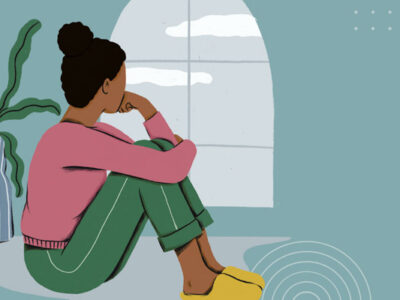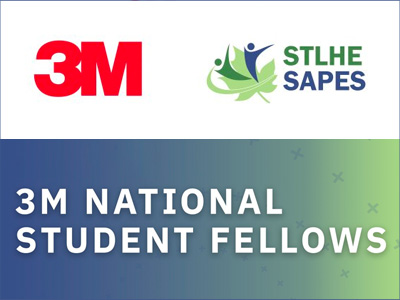Burnout was first conceptualized to address the physical and psychological health consequences from being overly exerted at work. In the past two decades, the phenomenon of burnout was found to be just as – if not more – prevalent in students. Similar to the working population, students engage in structured and coercive activities, including attending lectures, completing multiple assignments, and meeting tight deadlines. In addition, they are oftentimes placed in highly stressful situations, such as writing exams and giving presentations. Many students also face stressors from multiple domains, juggling work and family demands, while managing academic priorities.
Research found well over half of Canadian post-secondary students experience high levels of stress, induced through various academic, financial, physical, and social factors. This constant exposure to stress, coupled with demands from multiple domains, puts the student population at a high risk of burnout. It is important, however, to first understand the distinction between stress and burnout as the two terms are often used interchangeably.
Stress comes in waves, but can be managed and remedied through normal recovery routines, such as taking an evening off to binge your favourite TV show, or going for a hike over the weekend to reconnect with nature. Burnout is a completely different ball game. It lasts for much longer, and takes way more than just the usual self-care recipe to address and recover from its effects.
Burnout is recognized as a syndrome resulting from chronic exposure to emotional and cognitive stressors that are not appropriately managed. It is defined by three key elements:
- Emotional exhaustion: The complete depletion of emotional and cognitive resources in response to being overwhelmed with work related stressors (e.g., “I have nothing left in the tank”);
- Cynicism and detachment: The sense of emotional and cognitive disconnection from your work (e.g., “I don’t care about the midterms anymore”);
- Sense of reduced personal accomplishments: The negative evaluation and worldview towards your own work (e.g., “Do I really have what it takes to succeed in this program?”).
Where does it come from?
Studies found burnout among students stem from various internal and external factors. The first and obvious factor is course load. Research found the subjective perception of course load, rather than its objective measure, leads to student burnout. Afterall, every single one of us have different mental and cognitive capacity for work. What might be considered a balanced workload for one student may be overwhelming for the other. This overwhelming amount of stress and anxiety, amplified by imposed pressure and expectations, leads to a sense of defeat where students become demotivated and detached from their work.
For some students, burnout may be the result of more than just academic stress. Some have to juggle between multiple roles, such as being a parent, or having a part-time (or even full-time) job, exposing themselves to other non-academic related stressors. Having to balance multiple demands from various domains simultaneously (e.g., academic, familial, social, financial) with limited resources is extremely challenging, and can result in frustration and stress, contributing to an increased risk of burnout.
Burnout: Bad for Your Grades and Your Health
A burned-out student is not a successful student. Burnout has a direct adverse impact on academic performance. Students who experience burnout are also less satisfied with their academic experience, are less motivated, and put less effort in their studies. While other students take pride in their work, burned out students are more likely to undermine their accomplishments, and have less inclinations to succeed academically. Simply put, students who are burned out just don’t care anymore.
A burned-out student is not a healthy student either. Burnout is linked to serious physical health concerns, such as respiratory issues, cholesterol problems, and diabetes. Research also found burnout leading to psychological problems, such as insomnia, depression, and panic disorders. It is also linked to increased levels of unhealthy behaviours, such as higher risk of drug and alcohol abuse. In extreme cases, research found burnout to increase the risk of suicidal ideation and non-suicidal self-harm among post-secondary students, contributing to the suicide epidemic for many university and college campuses.
The Most Effective Solution to Addressing Burnout is to Prevent it
Recognizing the early signs leading to burnout is the first step to preventing it from becoming overwhelming. Some may feel the staggering surge of emotional exhaustion first, while others may start feeling cynical and disconnected from their academic work. Whatever the sign may be, take it seriously and address it proactively. Yes, you might have assignments to work on, you might have midterms that are coming up next week, but are you really being productive and efficient with your time when you are running on your fourth cup of coffee with 2 hours of sleep? It’s not worth it.
On the same note, being sleep deprived, or pulling an all-nighter to hand in your term paper or to study for the final exam is not a good use of your time. Lack of sleep is associated with a wide range of physical and psychological health problems. And let’s be honest here, are you really retaining any information that you are studying for at 3 a.m. in the morning?
Know how much you can handle. Just because your roommate is taking 5 courses in a term does not mean it is the right structure for you. Challenge yourself to be the best student you can be, but know your limits. Consider a rubber band: if stretched too far for too long, it will snap. People are no different; if you stretch yourself too far for too long, you will burnout.
Make plans to rest. Just as how you would create a to do list or use an agenda to structure your schedule for work, make plans for your recovery. And more importantly, go through with it and rest with full intention. I know it’s easier said than done, but try your best to shut off the guilt that you feel creeping at the back of your mind. Make some popcorn, put on your most comfortable clothes, and get lost in your favourite flick. Your work is not going to run away from you, it’ll be there for you to tackle – tomorrow.
Research has consistently found social support to be the best way to both prevent and address burnout. Reach out to your peers, talk to your friends, confide with your family. Establish a network of support from your social circle. Chances are, you are not the only one going through this. A good old venting session with someone in the same boat can go a long way. If you are not comfortable consolidating with your social circle, you can always seek support from campus counselling or psychological services as well.
Remember, feeling stress is normal, but don’t let it consume you. As someone once told me, our journey in the academia is a marathon, not a sprint. Go slow, to go fast.
References
Atalayin, C., Balkis, M., Tezel, H., Onal, B., & Kayrak, G. (2015). The prevalence and consequences of burnout on a group of preclinical dental students. European Journal of Dentistry, 9(3), 356-363.
Bresó, E., Salanova, M., & Schaufeli, W.B. (2007). In search of the “third dimension” of burnout: Efficacy or inefficacy? Applied Psychology: An International Review, 56(3), 460-478.
Jacobs, S.R., & Dodd, D. (2003). Student burnout as a function of personality, social support, and workload. Journal of College Student Development, 44(3), 291-303.
Salvagioni, D. A. J., Melanda, F. N., Mesas, A. E., González, A. D., Gabani, F. L., & Andrade, S. M. (2017). Physical, psychological and occupational consequences of job burnout: A systematic review of prospective studies. PLOS ONE, 12(10), e0185781. doi:10.1371/journal.pone.0185781
Schaufeli, W.B., Martínez, I.M., Pinto, A.M., Salavano, M., & Bakker, A.B. (2002). Burnout and engagement in university students: A cross-national study. Journal of Cross-Cultural Psychology, 33(5), 464-481.
Schramer, K.M., Rauti, C.M., Kartolo, A.B., & Kwantes, C.T. (2019). Examining burnout in employed university students. Journal of Public Mental Health, 19(1), 17-25.
Versaevel, L.N. (2014). Canadian post-secondary students, stress, and academic performance – A socio-ecological approach. Doctoral dissertation, The University of Western Ontario. Electronic Thesis and Dissertation Repository, 2657.
Wong, J. (2020). Students burnt out by pandemic learning push more universities toward a longer winter breaks. CBC News. Retrieved from: https://www.cbc.ca/news/canada/post-secondary-winter-break-health-1.5813322
Yang, H.J. (2004). Factors affecting student burnout and academic achievement in multiple enrollment programs in Taiwan’s technical-vocational colleges. International Journal of Educational Development, 24(3), 283-301.
Arief Kartolo is a PhD candidate in the Applied Social Psychology program at the University of Windsor. His research focuses on the impact of intercultural and intergroup conflicts; specifically, on the impact and interventions to mitigate the negative effects of stereotyping, prejudice, and discrimination in the workplace. He has published numerous articles with a wide range of topics, including the investigation of organizational culture on perceived discrimination, empirical assessment on the uses of social media on Indigenous activism, and creation of a burnout measure. In addition to his academic work, he has written many blog posts and provided consultation services to advocate for the inclusion and well-being of employees in the workplace.







Comments